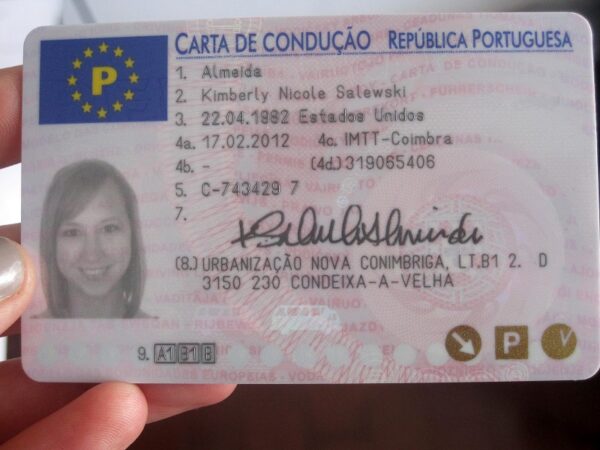Driving License Requirements's History History Of Driving License Requirements

Driving License Requirements: A Comprehensive Guide
Obtaining a driving license is an essential action for lots of individuals, granting them the capability to run an automobile legally and browse their environments more separately. However, the requirements for getting a driving license can vary considerably from one nation or region to another. Comprehending these requirements is important for potential drivers. This short article will delve into the driving license requirements and detail the normal steps involved in obtaining a license, in addition to common concerns and risks to prevent.
Kinds Of Driving Licenses
Before diving into the requirements, it is important to comprehend the different types of driving licenses frequently issued across jurisdictions. These can include:
- Learner's Permit: A provisional license enabling brand-new chauffeurs to practice under particular conditions.
- Complete (or Unrestricted) License: The basic driving license permitting the holder to drive separately without constraints.
- Business Driver's License (CDL): Required for drivers operating industrial vehicles, such as trucks and buses.
- Motorbike License: A specialized license for operating motorcycles.
The particular requirements for these various licenses will differ, but they usually follow comparable frameworks.
General Requirements for Obtaining a Driving License
Age Requirements
One of the primary requirements for acquiring a driving license is the applicant's age. A lot of jurisdictions set a minimum age for getting various types of licenses:
| License Type | Minimum Age |
|---|---|
| Student's Permit | 15-16 years |
| Full License | 18-21 years |
| Commercial License | 18-21 years |
| Bike License | 16-18 years |
Paperwork
When obtaining a driving license, the applicant should present a number of important documents. Although the specifics can vary, typical documents requirements include:
- Proof of identity (e.g., passport or birth certificate)
- Proof of residency (e.g., utility costs or lease arrangement)
- Social Security number or equivalent
- Adult consent type (for minors)
- Completion documents from motorist education courses (if relevant)
Examination Requirements
To acquire a driving license, applicants generally need to pass both a composed and a practical driving exam. The composed examination tests knowledge of traffic laws and safe driving practices, while the useful test assesses driving abilities in real traffic situations.
Secret Components of a Driving Test
- Composed Examination
- Traffic laws
- Roadway indications
- Safe driving practices
- Practical Driving Test
- Vehicle managing
- Obeying traffic signals
- Parking maneuvers
- Browsing through intersections
Fees
Generally, applicants should also pay a series of fees throughout the application process, which can encompass:
- Learner's authorization charge
- License application charge
- Evaluating fees
- Renewal charges (for future renewals)
Steps to Obtain a Driving License
The process for getting a driving license normally includes the following steps:
- Research Local Requirements: Familiarize oneself with the particular requirements in your jurisdiction.
- Get a Learner's Permit: Complete the necessary paperwork and tests to obtain a learner's authorization if appropriate.
- Total Driver's Education: Consider registering in a motorist education program-- this is often compulsory for younger candidates.
- Practice Driving: Accumulate the necessary variety of supervised driving hours.
- Arrange and Pass the Written Exam: Prepare for and pass the written driving test to acquire the student's or provisionary license.
- Set up and Pass the Practical Driving Test: After satisfying the practice requirements, take and pass the practical driving evaluation.
- Pay Required Fees: Pay any associated fees for the license.
- Get the Driving License: Once all steps are finished successfully, the license is provided.
Frequently Asked Questions About Driving License Requirements
Q1: Can I drive with a learner's permit?A1: Yes, however usually you need to be accompanied by a certified chauffeur and adhere to particular restrictions, such as driving just during daytime hours. Q2: What if I fail the driving test?A2: Most jurisdictions enable you to retake the driving test after a waiting period, though policies may vary, including extra fees. Q3: Are online driving tests available?A3: Some areas may offer online screening options for the written examination, however it is important
to check the particular guidelines for your jurisdiction. Q4: How long is a driving license valid?A4: Most driving licenses are valid from 4 to 10 years, depending upon local policies, after which they need to be restored.
Q5: Do I need to pass a vision test? Venda De Carta De Condução : Yes, a vision test is generally required as part of the license application process to ensure that drivers can see effectively.
Comprehending the driving license requirements is
the first step for anybody seeking to drive lawfully and securely. By browsing the steps laid out above and making sure that all necessary documents,
assessments, and charges are in order, potential motorists can effectively obtain their driving licenses. As always, prospects should examine their regional guidelines for the most precise and in-depth information. This detailed approach not just benefits the specific however also adds to roadway safety for everyone.

